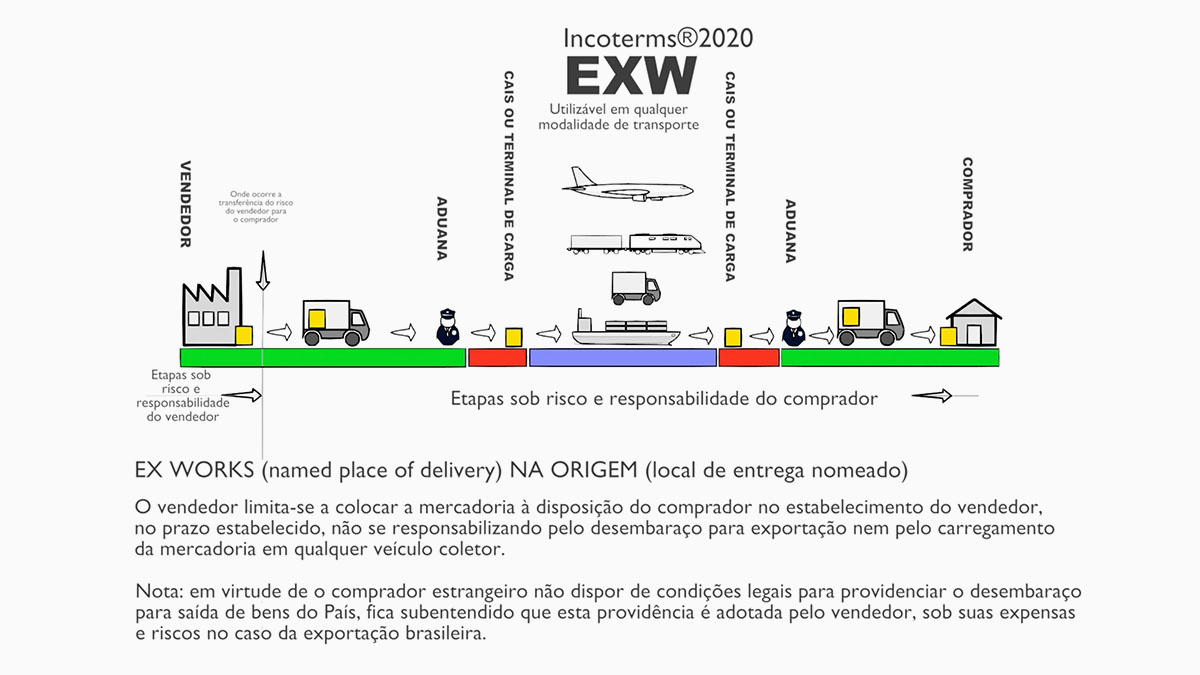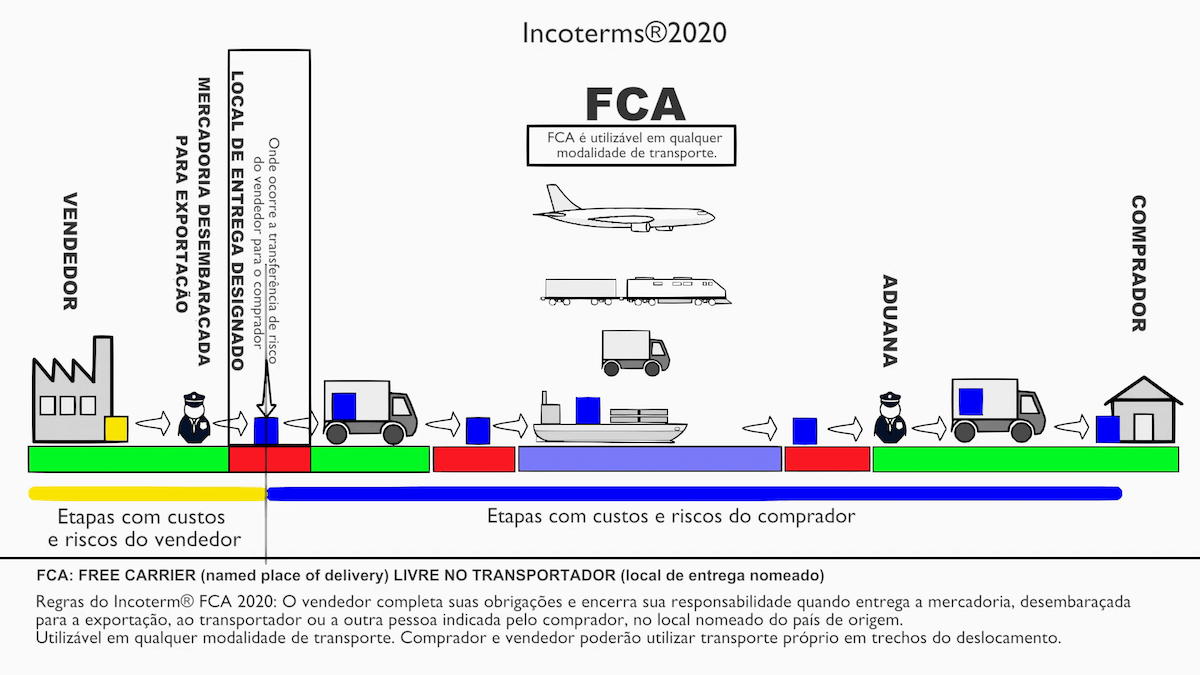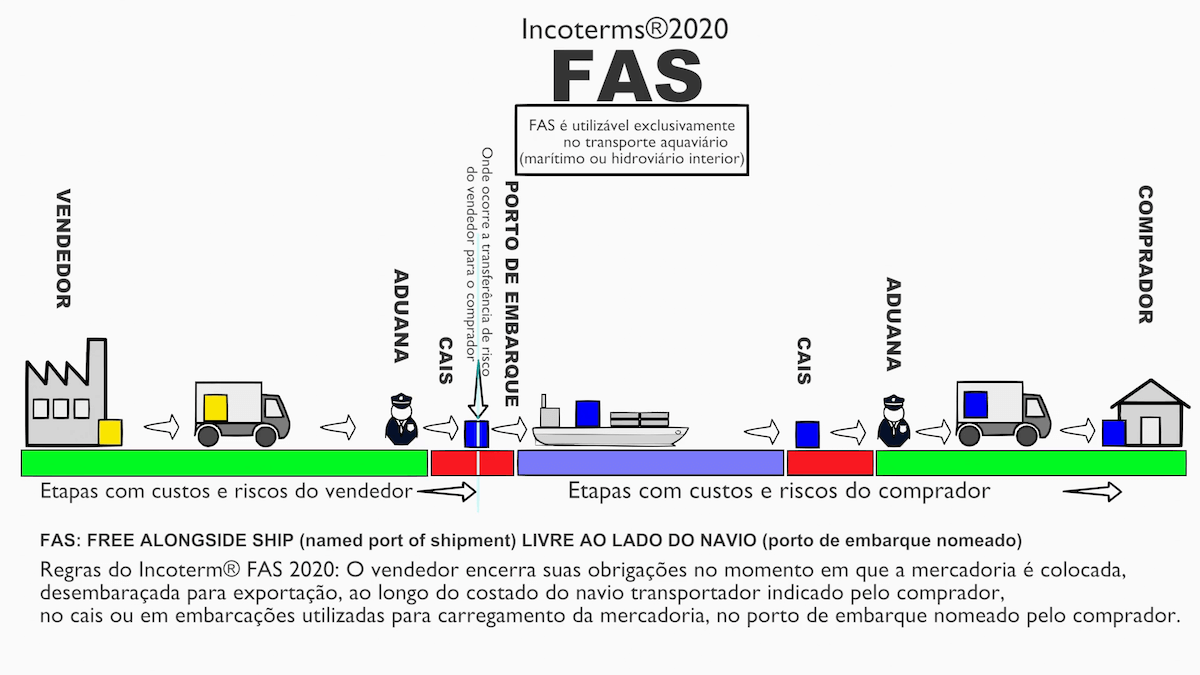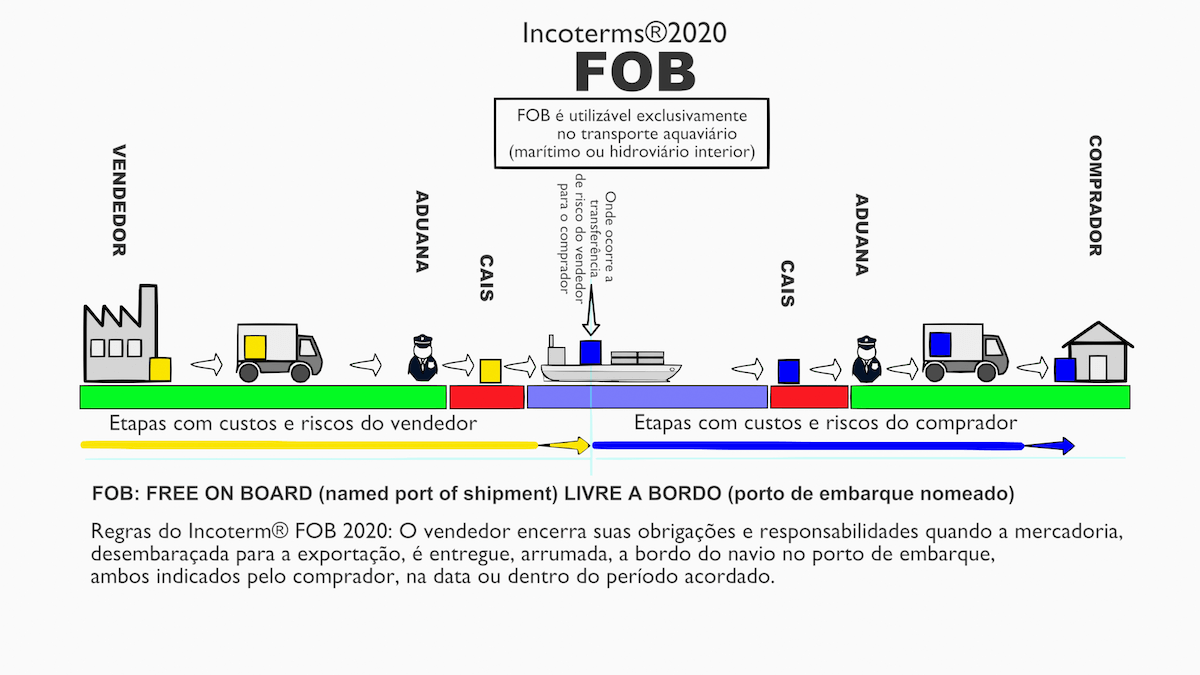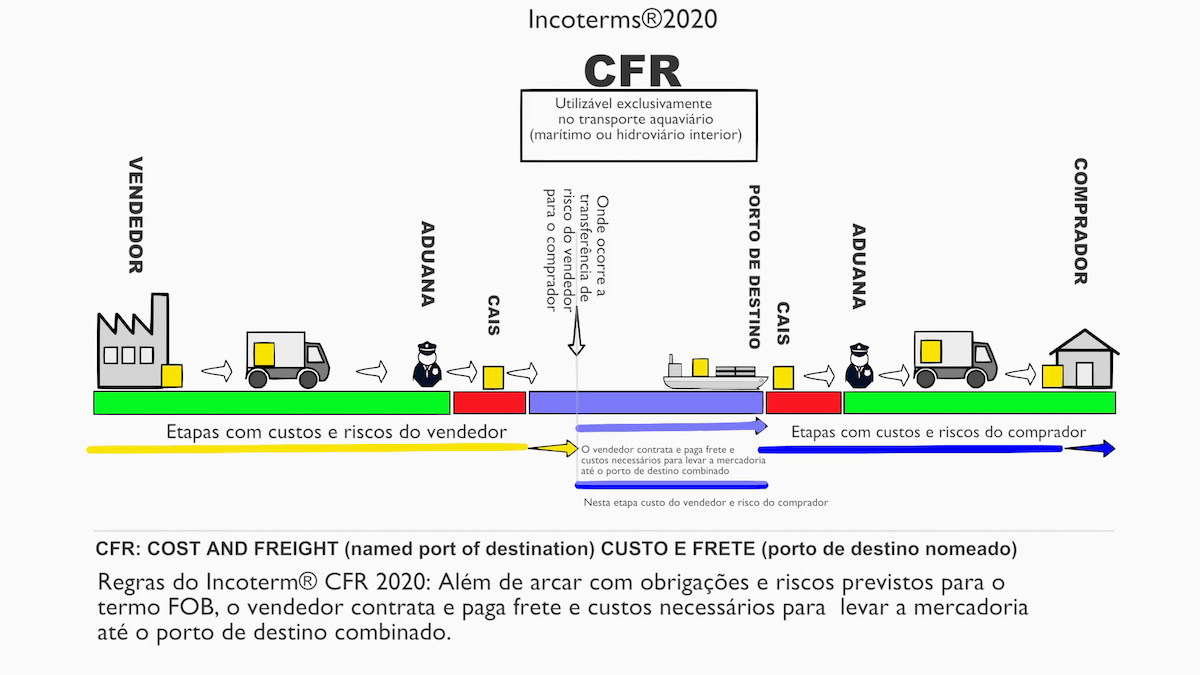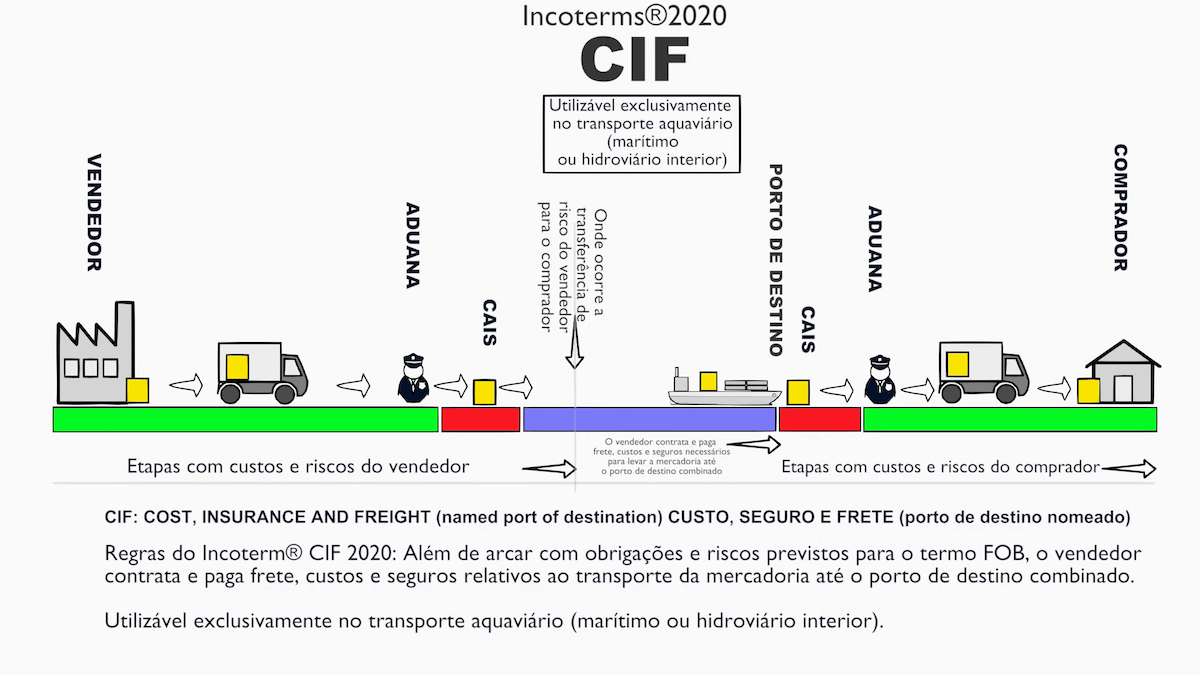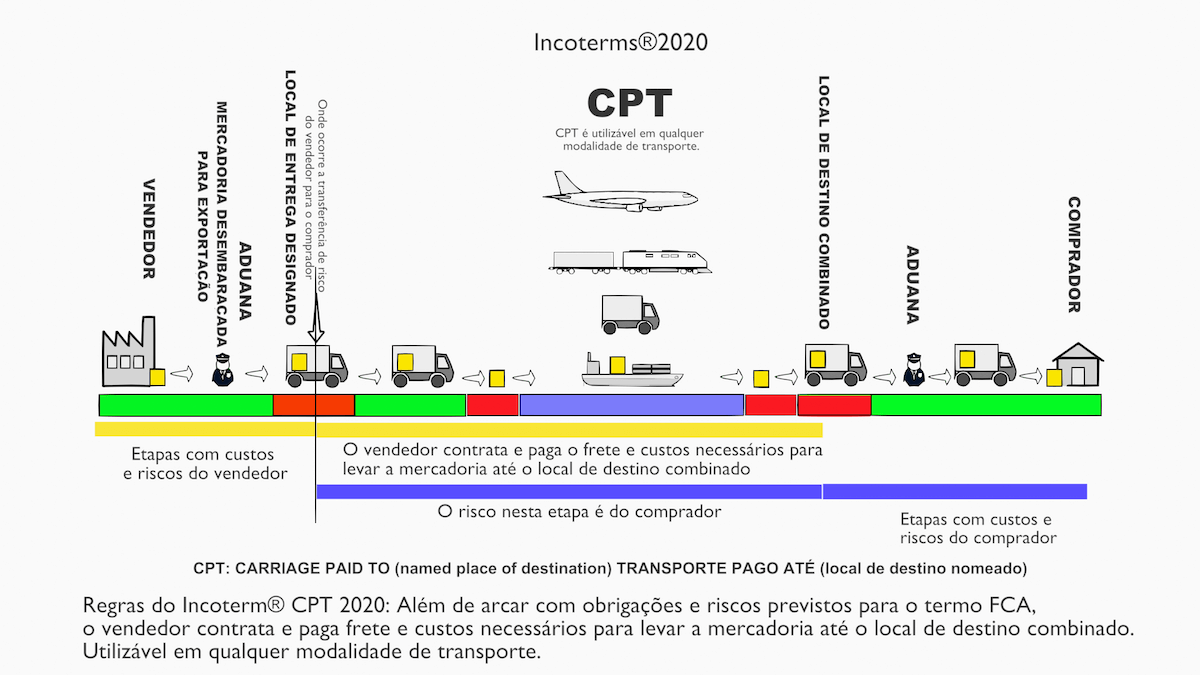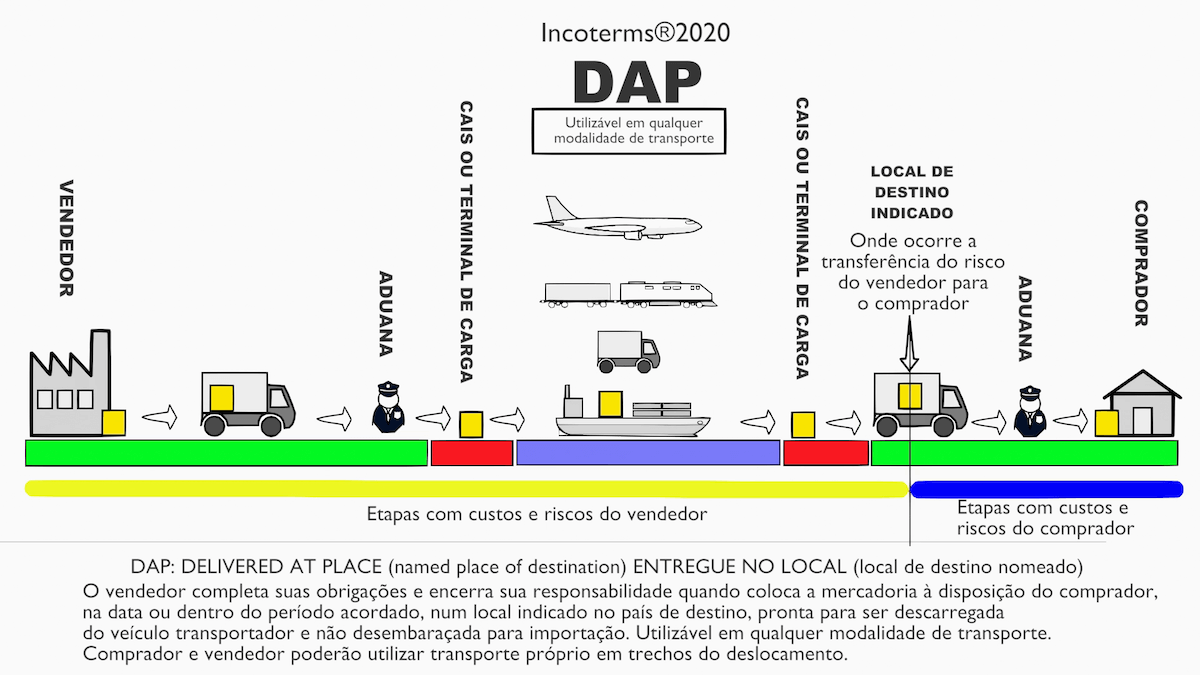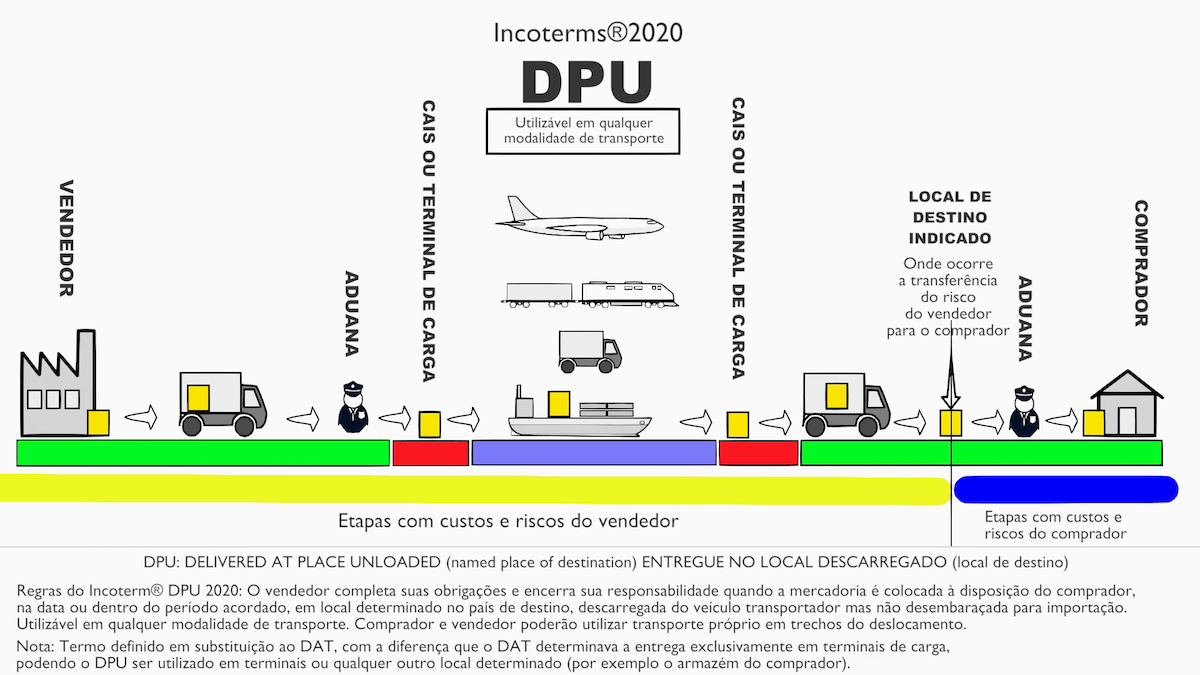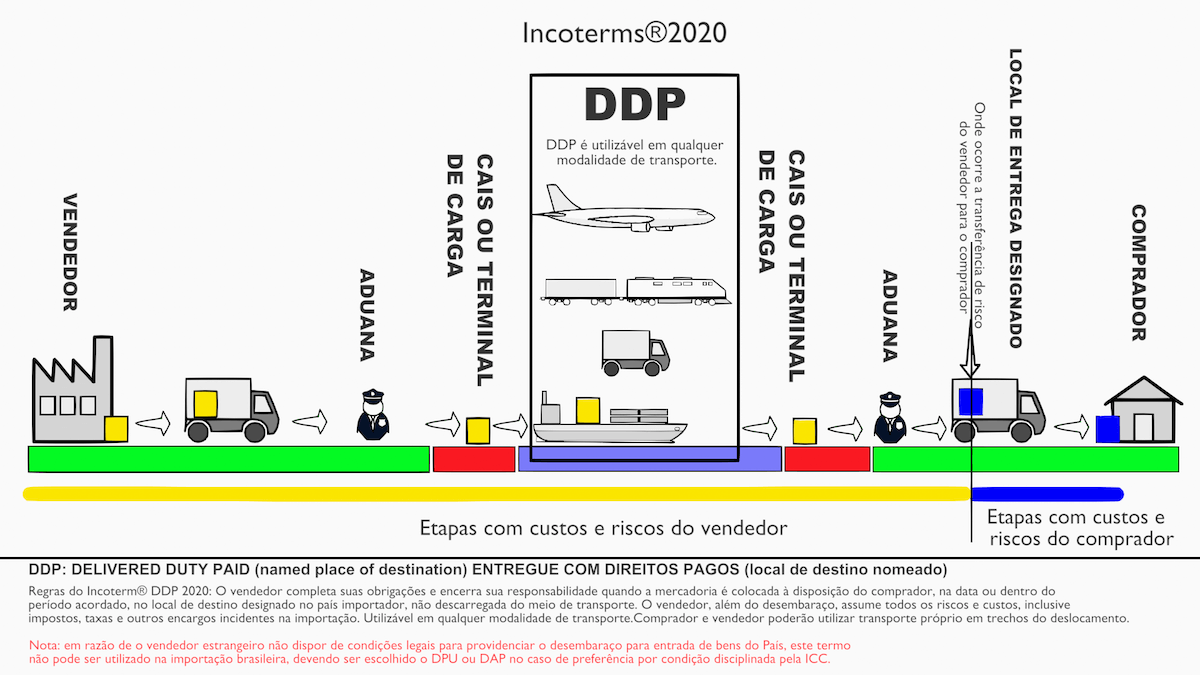The Incoterms (International Rules for Interpretation of Trade Commercial Terms) are international terms used to interpret typical contractual formulas used in international trade and cargo transportation. Created by the International Chamber of Commerce (ICC), the terms consist of Standard Trade Definitions and establish the obligations for the sale and purchase of goods between the seller/exporter and the buyer/importer.
Source: gov.br/siscomex
EX WORKS (named place of delivery)
The seller is limited to making the goods available to the buyer at the seller’s premises, within the established timeframe, and is not responsible for export clearance or loading the goods onto any collection vehicle.
It can be an option in any mode of transport.
Note: since the foreign buyer does not have the legal means to arrange for the goods to leave the country, it is understood that this is done by the seller, at his own expense and risk, in the case of Brazilian exports.
FREE CARRIER (named place of delivery)
The seller fulfills their obligations and ends their responsibility when goods are delivered, cleared for export, to the carrier or another person nominated by the buyer, at the named place in the country of origin.
It can be an option in any mode of transport.
Buyer and seller may use their own transportation for parts of the journey.
FREE ALONGSIDE SHIP (named port of shipment)
The seller ends their obligations when the goods, cleared for export, are placed alongside of the ship indicated by the buyer, on the quay or on vessels used to load the goods, at the port of shipment indicated by the buyer.
Exclusively for water transport (maritime or inland waterway).
FREE ON BOARD (named port of shipment)
The seller ends their obligations and responsibilities when the goods, cleared for export, are delivered onboard the vessel at the named port of shipment.
COST AND FREIGHT (named port of destination)
In addition to bearing the obligations and risks provided for the FOB term, the seller contracts and pays for the freight and costs required to take the goods to the agreed port of destination.
Exclusively for water transport (maritime or inland waterway).
COST, INSURANCE AND FREIGHT (named port of destination)
In addition to bearing the obligations and risks provided for the FOB term, the seller contracts and pays for freight, costs and insurance relating to the transportation of the goods to the agreed port of destination.
Exclusively for water transport (maritime or inland waterway).
CARRIAGE PAID TO (named place of destination)
In addition to bearing the obligations and risks provided for in the FCA term, the seller contracts and pays for the freight and costs required to take the goods to the agreed destination.
It can be an option in any mode of transport.
CARRIAGE AND INSURANCE PAID TO (named place of destination)
In addition to bearing the obligations and risks provided for in the FCA term, the seller contracts and pays for freight, costs and insurance relating to the transportation of the goods to the agreed destination.
It can be an option in any mode of transport.
DELIVERED AT PLACE (named place of destination)
Sellers fulfill their obligations and end their liability when the goods are placed at the disposal of the buyer, on the date or within the agreed period, at a place indicated in the country of destination, ready to be unloaded from the transport vehicle and not cleared for import.
It can be an option in any mode of transport.
Buyer and seller may use their own transportation for parts of the journey.
DELIVERED AT PLACE UNLOADED (named place of destination)
Sellers fulfill their obligations and end their liability when the goods are placed at the disposal of the buyer, on the date or within the agreed period, at a specified place in the country of destination, unloaded from the transport vehicle but not cleared for import.
It can be an option in any mode of transport.
Buyer and seller may use their own transportation for parts of the journey.
Term defined to replace DAT, with the difference that DAT determined “delivery” exclusively at cargo terminals, while DPU could be used at terminals or any other specific location (e.g. the buyer’s warehouse).
DELIVERED DUTY PAID (named place of destination)
Sellers fulfill their obligations and end their liability when the goods are made available to the buyer, on the date or within the agreed period, at the designated place of destination in the importing country, unloaded from the means of transport. The seller, in addition to clearance, assumes all risks and costs, including taxes, duties and other import charges.
It can be an option in any mode of transport.
Buyer and seller may use their own transportation for parts of the journey.
Note: because the foreign seller does not have the legal conditions to arrange clearance for the entry of goods into the country, this term cannot be used in Brazilian imports, and the DPU or DAP should be chosen in the case of preference by condition governed by the ICC.
